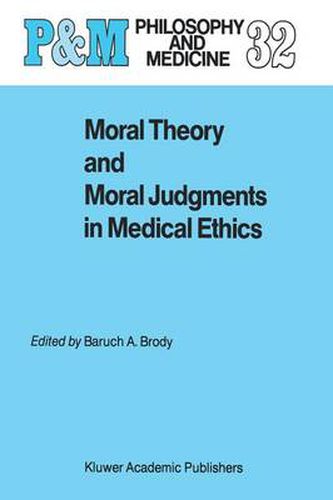Readings Newsletter
Become a Readings Member to make your shopping experience even easier.
Sign in or sign up for free!
You’re not far away from qualifying for FREE standard shipping within Australia
You’ve qualified for FREE standard shipping within Australia
The cart is loading…






This title is printed to order. This book may have been self-published. If so, we cannot guarantee the quality of the content. In the main most books will have gone through the editing process however some may not. We therefore suggest that you be aware of this before ordering this book. If in doubt check either the author or publisher’s details as we are unable to accept any returns unless they are faulty. Please contact us if you have any questions.
principles. A second solution to this problem is to develop a scale for weighing the significance of the conflicting principles in a given case and for concluding which action should be adopted because it is supported by the weightier considerations in that case. Such a solution seems more realistic than the lexical ordering approach, but the development of such a scale is a problematic task. Still other, more complex solutions are possible. Which is the best solution to this problem of conflicting principles of bioethics? We need a moral theory to answer that question. This is the first reason for concluding that the principles of bioethics are not the true foundations of justified judgment in bioethics. What is the problem of the unclear scope and implications of the principles of bioethics and how can an appeal to moral theory help deal with that problem? The scope of a bioethical principle is the range of cases in which it applies. The implications of a bioethical principle are the conclusions to be derived from that principle in those cases in which it applies. It is clear from a review of the discussions in bioethics that there are major unclarities about the scope and implications of each of the principles. Consider, for example, the principle of autonomy.
$9.00 standard shipping within Australia
FREE standard shipping within Australia for orders over $100.00
Express & International shipping calculated at checkout
This title is printed to order. This book may have been self-published. If so, we cannot guarantee the quality of the content. In the main most books will have gone through the editing process however some may not. We therefore suggest that you be aware of this before ordering this book. If in doubt check either the author or publisher’s details as we are unable to accept any returns unless they are faulty. Please contact us if you have any questions.
principles. A second solution to this problem is to develop a scale for weighing the significance of the conflicting principles in a given case and for concluding which action should be adopted because it is supported by the weightier considerations in that case. Such a solution seems more realistic than the lexical ordering approach, but the development of such a scale is a problematic task. Still other, more complex solutions are possible. Which is the best solution to this problem of conflicting principles of bioethics? We need a moral theory to answer that question. This is the first reason for concluding that the principles of bioethics are not the true foundations of justified judgment in bioethics. What is the problem of the unclear scope and implications of the principles of bioethics and how can an appeal to moral theory help deal with that problem? The scope of a bioethical principle is the range of cases in which it applies. The implications of a bioethical principle are the conclusions to be derived from that principle in those cases in which it applies. It is clear from a review of the discussions in bioethics that there are major unclarities about the scope and implications of each of the principles. Consider, for example, the principle of autonomy.